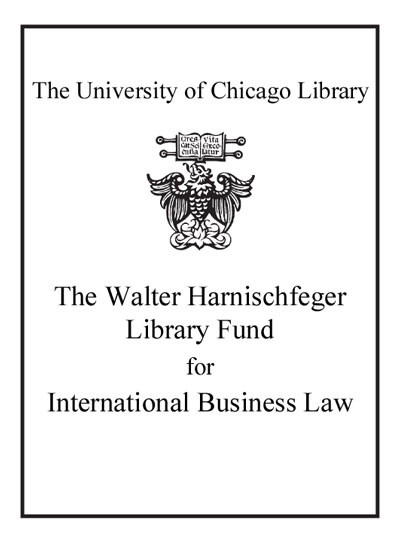| Summary: | "What does justice demand in international trade regulation? And how far does World Trade Organization (WTO) law respond to those demands? Whether our focus is developing countries, struggling industries, or environmental protection, distributive conflict is a pervasive feature of international economic law. Despite this, we lack an adequate theory of distributive justice for this domain. Drawing on philosophical approaches to global justice, this book advances a novel theory of justice in trade regulation, and applies this to explain and critique the law of the WTO. Integrating theoretical and doctrinal approaches, it demonstrates the potential for political theory to illuminate and inform the progressive development of WTO law, including rules on border measures, discrimination, trade remedies and domestic regulation. Written from an interdisciplinary perspective, accessible to lawyers, philosophers and political scientists, the book will appeal both to theorists interested in building bridges from theory to practice, and practitioners seeking new perspectives on existing problems"--
"This book is an attempt to answer some of the fundamental questions that these kinds of claims raise. What exactly does it mean to say that international trade regulation is unfair, or unjust? In a world of independent states, where is the line between those things a state can permissibly do, even if this has effects on outsiders, and those that constitute wrongs to those outsiders? How should states reconcile the claims of their own citizens, including especially those least well off, with the demands of outsiders with whom they do, or might, economically interact? And how far does the existing trade regime correctly answer these questions? For too long, the liberal international economic order assumed it was legitimized by an economic theory that showed international trade was in everyone's interests"--
|
|---|

